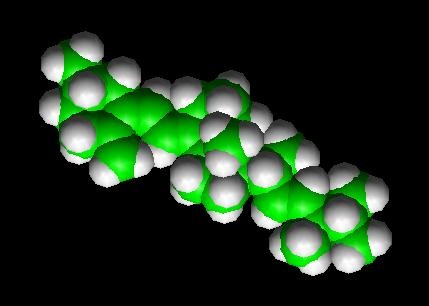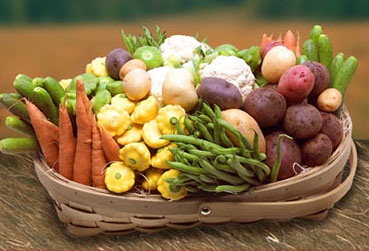By now we have all set our resolutions, succeeded in some and no doubt, failed in some. I’ve decided to look at resolutions from another perspective. Why do we wait until the New Year to start something that is going to benefit us? Most resolutions center around health – exercising more, eating better, being more proactive towards our health issues. Why don’t we start these resolutions mid-year? Or when they cross our minds?
Starting the New Year with a laundry list of changes that you want to implement into your life is setting yourself up for failure. I hope you kept your resolutions list short and achievable. It’s never too late to start making changes in your diet and lifestyle for the better.
Read on for some interesting articles!
Vitamin D
 Vitamin D production, by our skin, is reduced by anything that decreases the intensity of the sun’s rays, including time of day, cloud cover, smog, skin melanin content and sunscreen. The efficiency of conversion tends to decrease with age also.
Vitamin D production, by our skin, is reduced by anything that decreases the intensity of the sun’s rays, including time of day, cloud cover, smog, skin melanin content and sunscreen. The efficiency of conversion tends to decrease with age also.
Vitamin D is essential in promoting calcium homeostasis, healthy immune cell maturation, nerve & myelin health, memory, cognition and a healthy inflammatory response.
Vitamin D3 is the naturally occurring form of vitamin D synthesized in humans. Research shows that vitamin D3 may be more than three times more effective than other forms of Vitamin D in raising and maintaining serum vitamin D levels.
Random blood testing in research studies have shown that 40% of the population is deficient in Vitamin D. A study at the Mayo Clinic found that 92% of patients complaining of musculo-skeletal pain had low vitamin D levels.
Vitamin D testing is needed to establish a diagnosis of low vitamin D. Vitamin D is a Fat Soluble vitamin and should be taken with caution. Call Dr. Mundeir today to schedule an appointment to discuss if Vitamin D supplementation is appropriate for you.
The “Dirty Dozen”
 The Must Buy Organic Fruits and Veggies
The Must Buy Organic Fruits and Veggies
With the cost of food rising, including organic food, it is important to know which foods on your shopping list should be organic. The Environmental Working Group (EWG) has determined the “dirty-dozen,” the must-buy organic foods. By analyzing more than 100,000 pesticide test results, they look at the amount of pesticides found in foods, even after washing, to determine the “dirty-dozen.” Below is a list of the must-buy organic…
- Peaches
- Apples
- Sweet Bell peppers
- Celery
- Nectarines
- Strawberries
- Cherries
- Lettuce
- Grapes, imported
- Pears
- Spinach
- Potatoes
There are number of reason why some fruits and vegetables would hold on to pesticides more than others. As an example a strawberry might hold on to a pesticide due to its soft, thin outer layer. Whereas, a banana, with its thick peel, would have less of a chance of contamination to its edible portion.
Keep the “dirty-dozen” in mind when shopping.
Reference: Environmental Working Group
About the Author
Written by Dr. Mundeir
Dr. Jaspreet Mundeir, ND is a licensed Naturopathic Doctor practicing in the East Bay Area. She is the owner of East Bay Natural Medicine where she focuses on helping patients achieve their optimal health state using homeopathy, hydrotherapy, nutritional supplements, botanical medicine and bio-identical hormones.
Famous Posts
-
Immune Booster Injections
Are you looking for an effective way to boost your...
-
Wet Socks Treatment
You’d probably never guess that a pair of wet socks...
-
Dandelion Salad Recipe with Fresh Goat Cheese & Apples
Dandelion greens pack a nutritional punch. Serve them...
-
2015 Dirty Dozen
The Environmental Working Group has put out their latest...
-
B 12 & B Complex Injections
B Vitamins are involved in many metabolic reactions...
Categories
- Blog (116)
- Events (6)
- Newsletter (38)
Recent Posts
- 20Nov
Natural Ways to Prevent and Treat Colds & Flu
BlogWhen it comes to cold and flu season, prevention really...
- 15Mar
Shopper’s Guide to Pesticides in Produce – 2023
BlogThe Environmental Working Group does invaluable work...
- 06Aug










